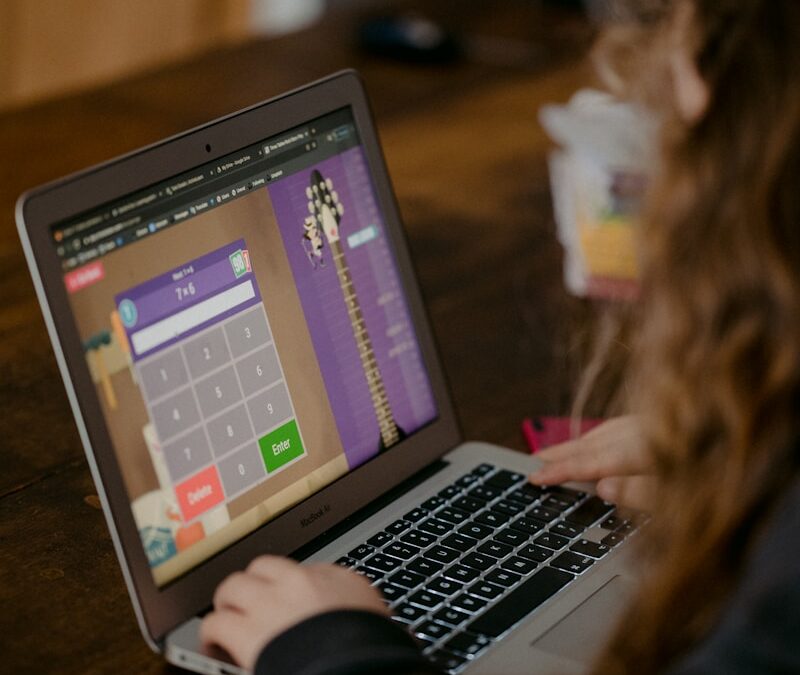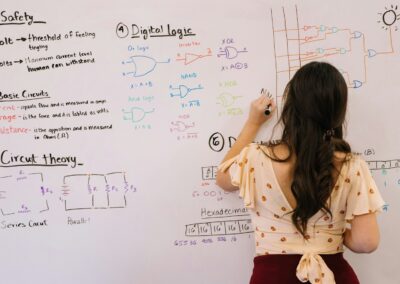Revolutionizing Education with Modern Technology
The Impact of Immersive Learning on Education
Integrating immersive learning environments into existing curricula can significantly enhance traditional teaching methods by leveraging advanced technologies such as virtual reality (VR), augmented reality (AR), and mixed reality (MR). This innovative approach to education offers immense potential for institutions in Saudi Arabia and the UAE, where a commitment to educational excellence and technological advancement is paramount. By adopting immersive learning environments, educators can create engaging and interactive experiences that foster deeper understanding and retention of knowledge.
Immersive learning environments utilize VR, AR, and MR to create simulated experiences that mimic real-world scenarios. These technologies allow students to explore complex concepts and environments in a safe and controlled setting. For example, medical students in Riyadh can use VR to practice surgical procedures, gaining hands-on experience without the risks associated with real-life operations. Similarly, engineering students in Dubai can utilize AR to visualize and interact with 3D models of structures, enhancing their spatial awareness and problem-solving skills.
Moreover, immersive learning can address various learning styles and needs, making education more inclusive and accessible. Visual, auditory, and kinesthetic learners can benefit from the multisensory experiences provided by immersive technologies. For instance, language learners can engage in virtual conversations with native speakers, improving their language skills in a realistic context. By integrating immersive learning environments into curricula, educational institutions in Saudi Arabia and the UAE can provide personalized and effective learning experiences that cater to diverse student populations.
Enhancing Business Success with Educational Technology
The integration of immersive learning environments into educational curricula can have a profound impact on business success in Saudi Arabia and the UAE. By fostering a culture of innovation and continuous improvement, educational institutions can produce graduates who are well-equipped to meet the demands of the modern workforce. This, in turn, can enhance the competitiveness and productivity of businesses across various industries.
One of the key advantages of immersive learning is its ability to develop critical thinking and problem-solving skills. These skills are essential for success in the business world, where complex challenges require innovative solutions. By engaging students in interactive and experiential learning activities, immersive technologies can promote the development of these skills. For example, business students can participate in virtual simulations of market scenarios, allowing them to apply theoretical knowledge to real-world situations. This hands-on experience can prepare them for leadership roles and strategic decision-making in their future careers.
Furthermore, immersive learning environments can support the professional development of employees by providing continuous learning opportunities. Businesses in Riyadh and Dubai can leverage VR and AR for training and upskilling their workforce, reducing the time and costs associated with traditional training methods. For instance, employees can engage in virtual training sessions that replicate their work environment, allowing them to practice new skills and procedures in a realistic setting. By investing in educational technology, businesses can enhance employee performance, reduce turnover, and maintain a competitive edge.
Leadership and Management Skills for Implementing Immersive Learning
As immersive learning technologies become more prevalent, the need for leadership and management skills capable of navigating this technological frontier will grow. Educators and administrators in Saudi Arabia and the UAE must proactively understand the potential of immersive learning and its applications. This includes staying informed about the latest advancements, evaluating the benefits and challenges of implementation, and developing strategies to integrate immersive learning into their curricula.
Effective leadership is essential for driving technological innovation and ensuring the successful adoption of immersive learning environments. Leaders must possess a deep understanding of the technology and its potential impact on education. They should also be able to communicate the benefits and challenges of immersive learning to their teams, stakeholders, and students, fostering a shared vision and commitment to innovation. By promoting a culture of collaboration and continuous learning, leaders can ensure that their institutions are well-positioned to capitalize on the opportunities presented by immersive learning.
In addition to technical expertise, strong project management skills are crucial for overseeing the integration of immersive learning technologies. This involves planning, coordinating, and monitoring the implementation process, ensuring that projects are completed on time and within budget. Project managers must be adept at identifying and mitigating risks, managing resources, and maintaining clear communication with all stakeholders. By developing these skills, educational institutions can effectively manage the complexities of technological transformation and achieve successful outcomes.
Future Directions: Integrating Immersive Learning with Emerging Technologies
The future of immersive learning is intrinsically linked to other emerging technologies such as artificial intelligence (AI), blockchain, and the metaverse. The integration of these technologies can create a powerful and interconnected ecosystem that enhances the capabilities of immersive learning. For instance, AI algorithms can personalize learning experiences based on individual student needs and progress, making education more adaptive and effective.
Blockchain technology can provide a secure and transparent framework for managing educational credentials and records. This is especially important in regions like Saudi Arabia and the UAE, where data integrity and security are paramount. By leveraging blockchain, educational institutions can ensure that student achievements and qualifications are securely stored and easily verifiable, enhancing trust and credibility.
The metaverse, a virtual reality space where users can interact with a computer-generated environment and other users, offers exciting possibilities for the future of immersive learning. In the metaverse, students can participate in virtual classrooms, collaborate with peers from around the world, and engage in experiential learning activities that transcend the limitations of physical space. This can lead to more inclusive and engaging educational experiences, enabling students to develop global perspectives and skills.
Conclusion: Embracing the Future of Immersive Learning
In conclusion, integrating immersive learning environments into existing curricula can significantly enhance traditional teaching methods by leveraging advanced technologies such as VR, AR, and MR. This transformative approach to education offers immense potential for institutions in Saudi Arabia and the UAE, enabling them to provide engaging and effective learning experiences. The integration of immersive learning with AI, blockchain, and the metaverse further enhances its capabilities, creating a robust and adaptive educational ecosystem.
Educational leaders, mid-level managers, and entrepreneurs must recognize the strategic importance of immersive learning and invest in its development and implementation. By fostering a culture of innovation, continuous improvement, and strong leadership, educational institutions can harness the power of immersive learning to achieve long-term success and competitiveness. The future is bright for immersive learning, and those who embrace its potential will lead the way in educational advancement and business excellence.
#ImmersiveLearning #EducationalTechnology #AIinEducation #CurriculumDevelopment #BusinessSuccess #LeadershipSkills #ProjectManagement























